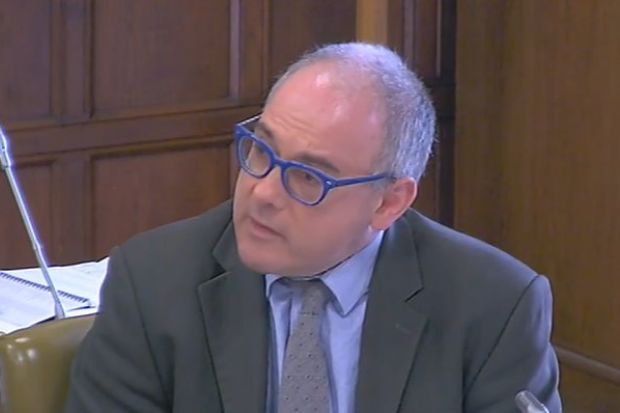The Westminster government is to commission a national review of suicides at UK universities but has stopped short of creating a legal duty of care for students.
Higher education minister Robert Halfon has warned that he might ask the English regulator, the Office for Students, to create a new registration condition for universities on student mental health if not enough progress is made on the issue in the coming months.
Speaking at a Westminster Hall debate called after a petition started by the families of young people who killed themselves while studying at university collected almost 130,000 signatures, Mr Halfon said he was “confident that higher education can meet this challenge, but I have made it absolutely clear that if this response is not satisfactory I will go further”.
Mr Halfon said he wanted to see progress in three areas: early identification of students at risk, the creation of more personalised and compassionate academic processes, and the sharing of lessons from existing reviews of student suicides.
Speaking to Times Higher Education, Mr Halfon said: “We owe it to the memories of the students we have lost to take strong and effective action to prevent further tragedies.”
An independent body will be commissioned to carry out the national review and Edward Peck, the government’s student support champion and vice-chancellor of Nottingham Trent University, will also chair a new higher education mental health task force.
This “will develop a commitment on how universities communicate with students about disciplinary issues and set clear targets for improvement against which universities will report and measure their progress”, Mr Halfon said.
As part of a final report – due to be published by May 2024 – the task force will also set out a plan for early identification of students at risk.
Mr Halfon also called on all universities to sign up by September 2024 to the Mental Health Charter Programme run by the group Student Minds. Only 61 had already done so, he added.
The minister told the bereaved families that he understood their arguments for creating a statutory duty of care but did not see it as the most effective intervention.
He said there were existing protections for students in law and such a measure risked creating a “one-size-fits-all” approach when there was no consensus on which interventions were the most effective. But Mr Halfon said he was not “closing the door on future legislation if it is required”.
The debate heard from MPs who highlighted the cases of students in their constituencies, including that of University of Bristol student Natasha Abrahart, who was found dead in her residence in April 2018 on the day she was due to give a presentation in front of hundreds of her peers.
Also mentioned was Harry Armstrong Evans, who died at his family home in Cornwall in June 2021 after suffering a mental health crisis at the University of Exeter.
Speaking during the debate, Nick Fletcher, the Conservative MP for Don Valley, said 319 lives had been lost by suicide between 2017 and 2020 – each one a “tragedy that will haunt family and friends for the rest of their lives”.
He called on universities – which were “meant to be the brains of this country” – to do better. “These young people are not just customers. They are the students and sole reason for you working in the environment that you do.”
Paul Blomfeld, co-chair of the All-Party Parliamentary Group on International Students, said: “I don’t think there is a one-size-fits-all solution given the diversity of our student population, but there must be a real commitment from government, from the sector, from all of us in this place to reducing student suicide.”
Angela Richardson, the Conservative MP for Guildford, was one of the politicians to back the statutory duty of care. She said “hand-holding, a cup of tea and warm words were not enough” and urged the government to look again at “targeted regulation”.
Shadow higher education minister Matt Western said the gap between expectations of students and parents and the reality of mental health provision in universities was “just far too great”, highlighting that “many have to wait a whole year for support”.
He said it was “almost impossible to argue there isn’t a serious mental health crisis on our campuses” so the question should be how we remedy it and prevent further loss of life. He called for more investment in young people’s mental health and for better integration between universities and their local NHS trusts.
patrick.jack@timeshighereducation.com
• If you’re having suicidal thoughts or feel you need to talk to someone, a free helpline is available around the clock in the UK on 116123, or you can email jo@samaritans.org. In the US, the National Suicide Prevention Lifeline is 1-800-273-8255. In Australia, the crisis support service Lifeline is 13 11 14. Other international suicide helplines can be found at www.befrienders.org.




